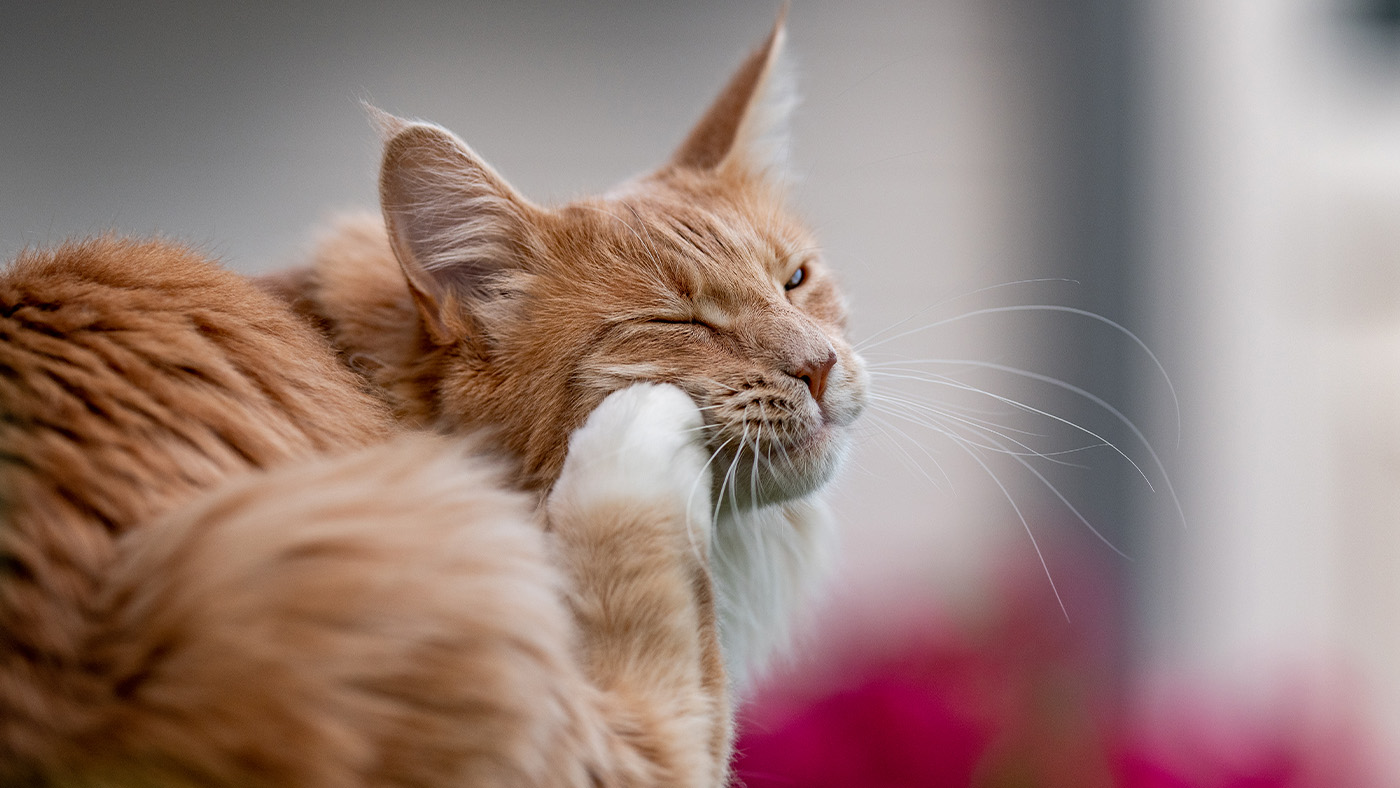10 signs your cat is happy
We reveal the signs your cat is happy – with a little help from an expert vet
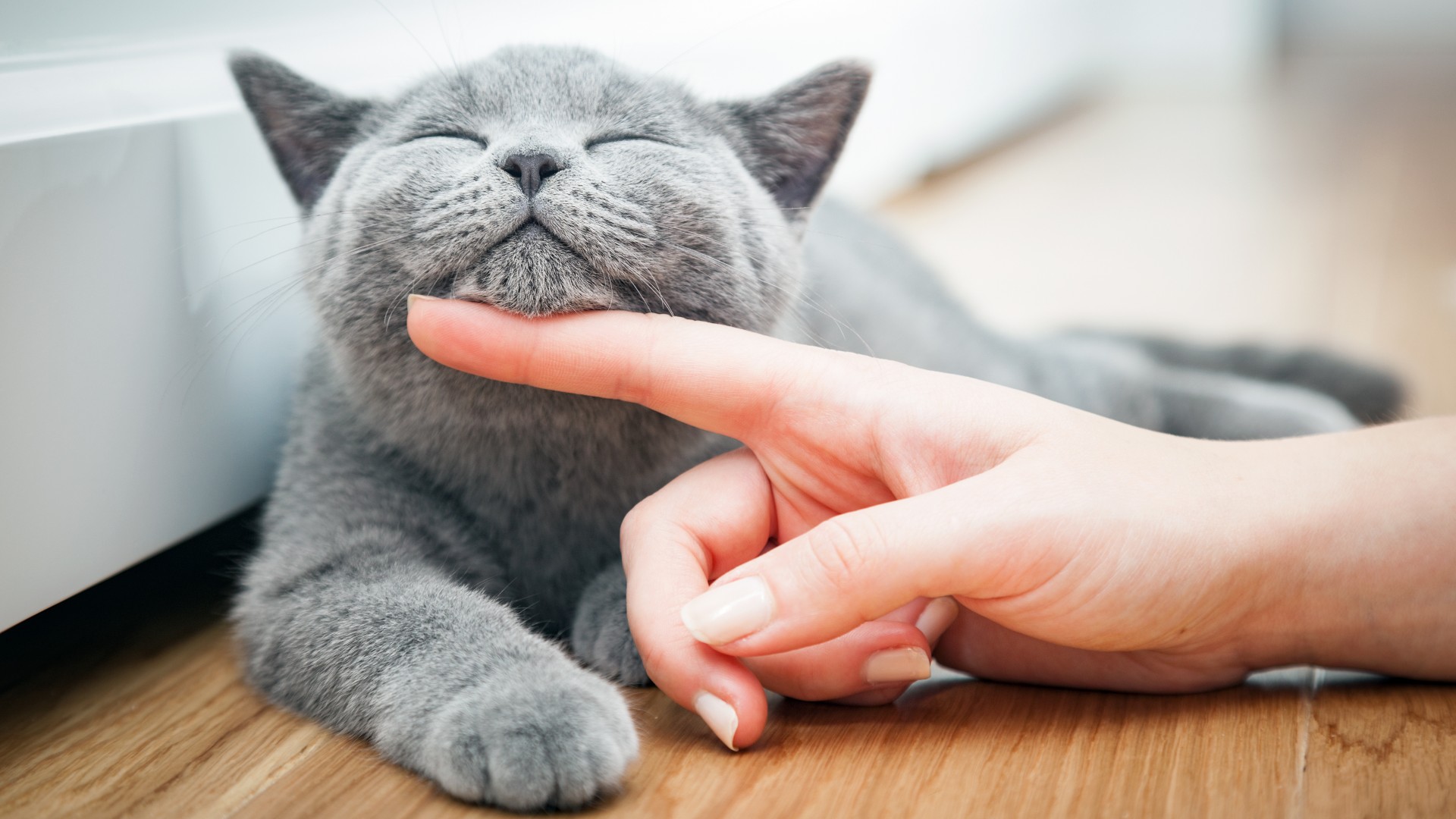
If you have a feline friend in your life, you may be on the lookout for signs your cat is happy. Unlike dogs, cats don't tend to wear their emotions on their sleeve, but the good news is there are plenty of ways you can tell how they're feeling.
Cat communication can seem subtle at first, but once you know what to look out for, you'll find it a whole lot easier to figure out if your kitty is content. Things like eating well, wanting to play with the best cat toys, and being affectionate are all clues that your cat feels happy, but there are some more subtle signs worth being aware of as well.
From body language to vocalizations, your kitty will use a range of body parts and behaviors to show you how they're feeling. Below, we team up with expert vet Dr Rebecca MacMillan to reveal the signs of a happy cat. Ready to find out what they are? Read on...
Signs a cat is happy
1. They talk to you
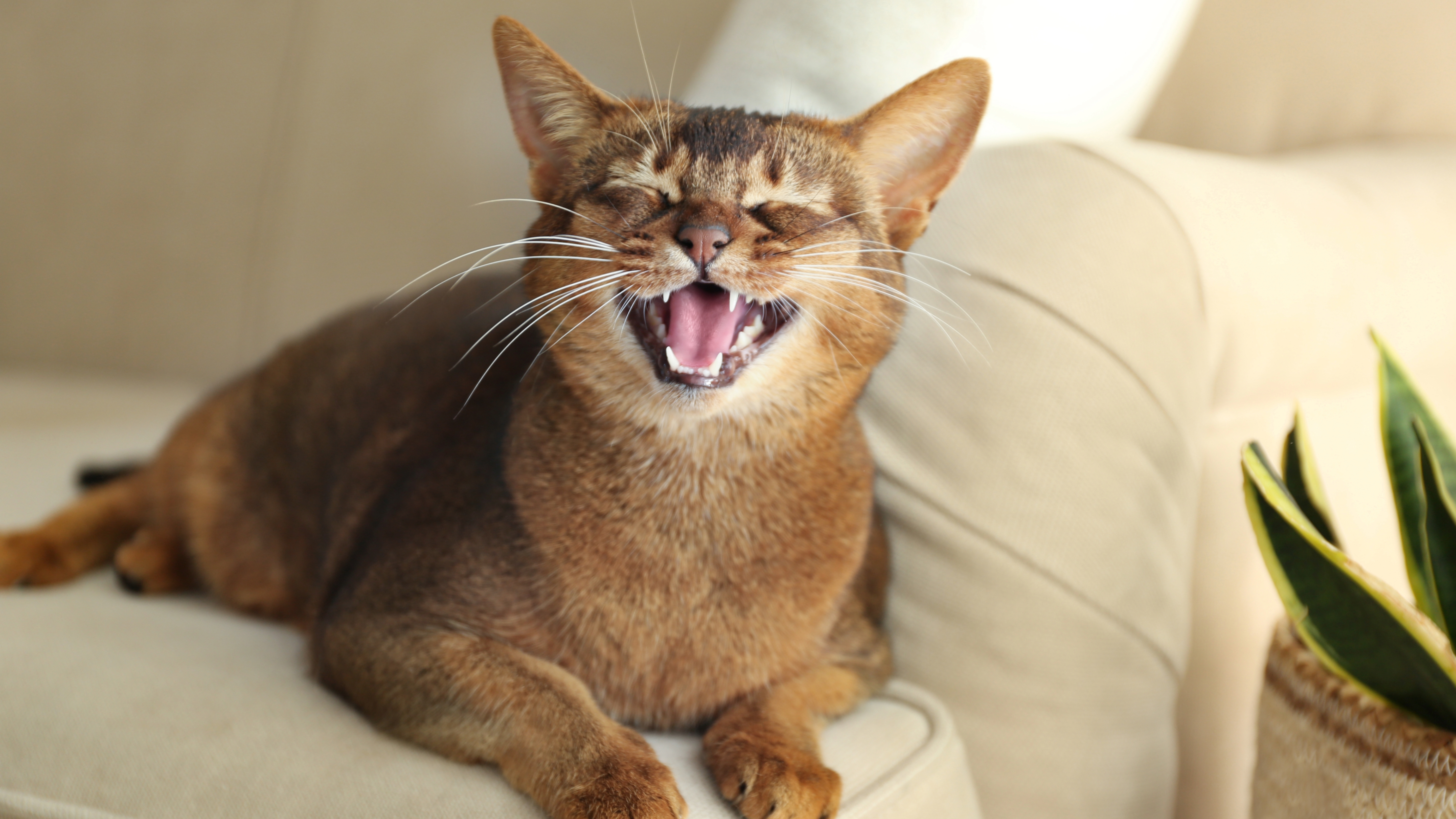
Have you ever found yourself asking the question, 'Why is my cat meowing so much?' Us, too! While excessive meowing can sometimes be a sign of an underlying health issue, some cats simply love to chat.
"A happy cat will often be a chatty cat!" confirms Dr MacMillan. "Cats will often make cheerful noises like meows, chirps, and trills when they are feeling relaxed or looking for attention from their owners."
How often your feline friend talks will depend somewhat on their breed and individual temperament. British Shorthairs and Persians, for example, tend to be less vocal than the loudest cat breeds, who will communicate much more frequently – yes, we're looking at you, Siamese!
2. Happy body language
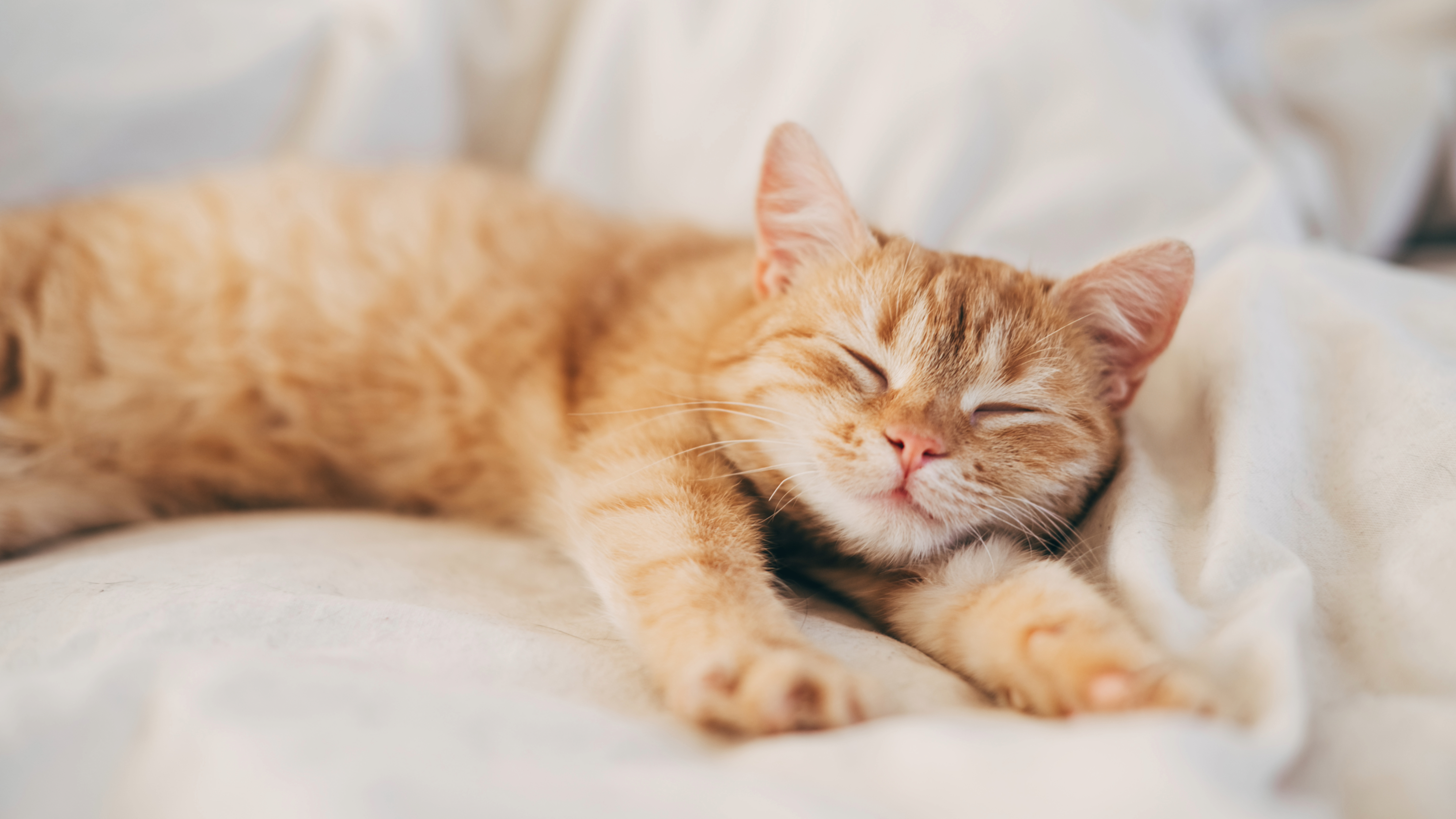
Reading up on cat body language can be a great way to learn the signs that indicate happiness in your feline friend. According to Dr MacMillan, body language is key in determining if your kitty is content.
"Their body should appear generally relaxed and loose, but they may also do other things like rub themselves against you or lightly swish their tail," she explains. "It can even be much more subtle than this, with slow-blinking eyes being a sign that your cat is feeling relaxed."
When observing your cat's body language, it can also be helpful to pay attention to what's going on around them, as this will give you additional clues as to whether they're likely to be in a good mood.
3. Kneading
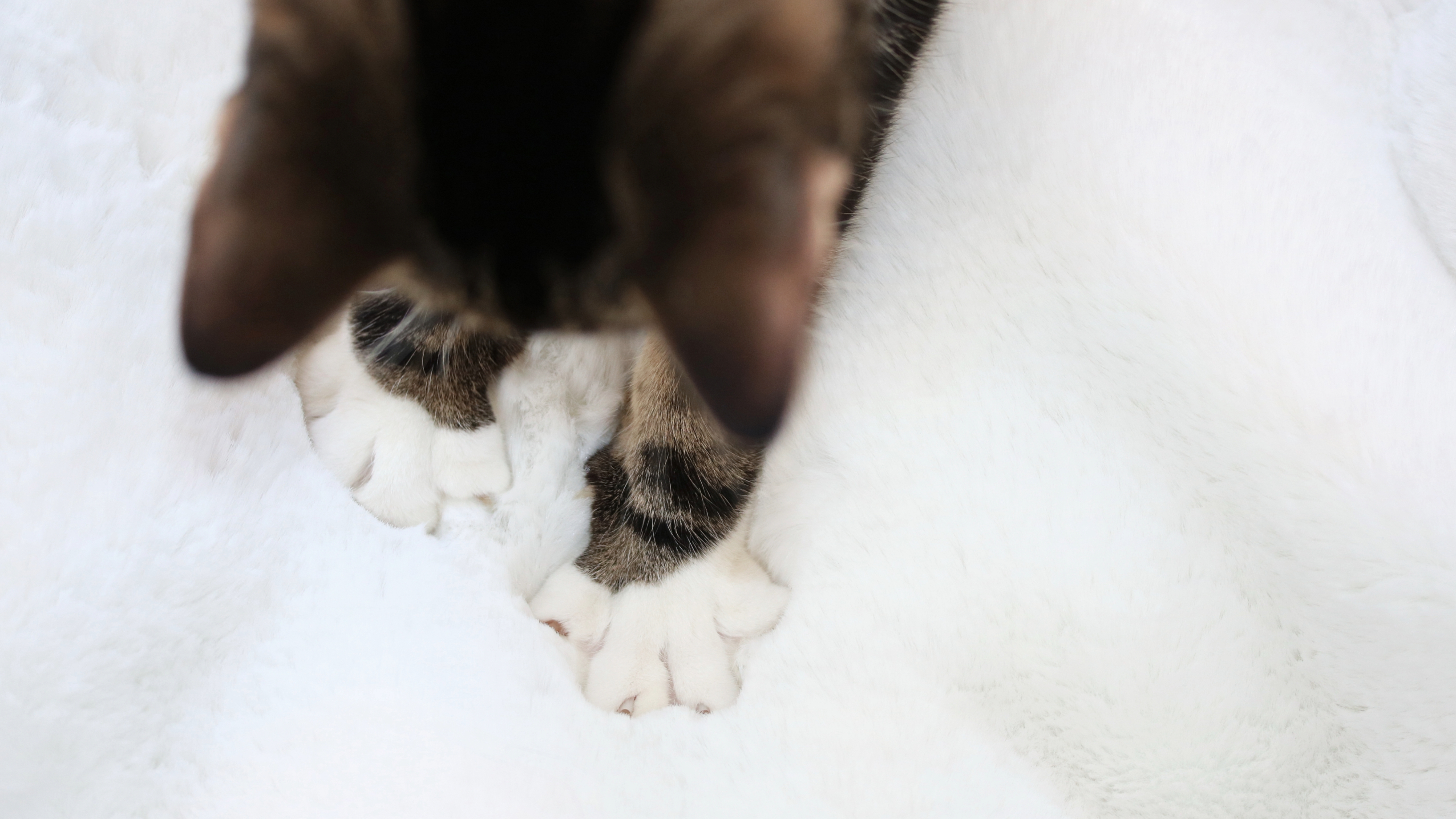
Why do cats knead? Sometimes it's a way to stretch their muscles or mark their territory, but it's also a behavior that cats will do when they're feeling content or wanting to show you some affection.
"When a cat kneads you or their bedding (often referred to as ‘making biscuits’), this is a sure sign they are feeling happy and relaxed," says Dr MacMillan. "Kittens will knead against their mothers as they feed to stimulate milk letdown, so this action replicates that time in their lives. It gives them the ‘feel good’ factor."
4. Being affectionate
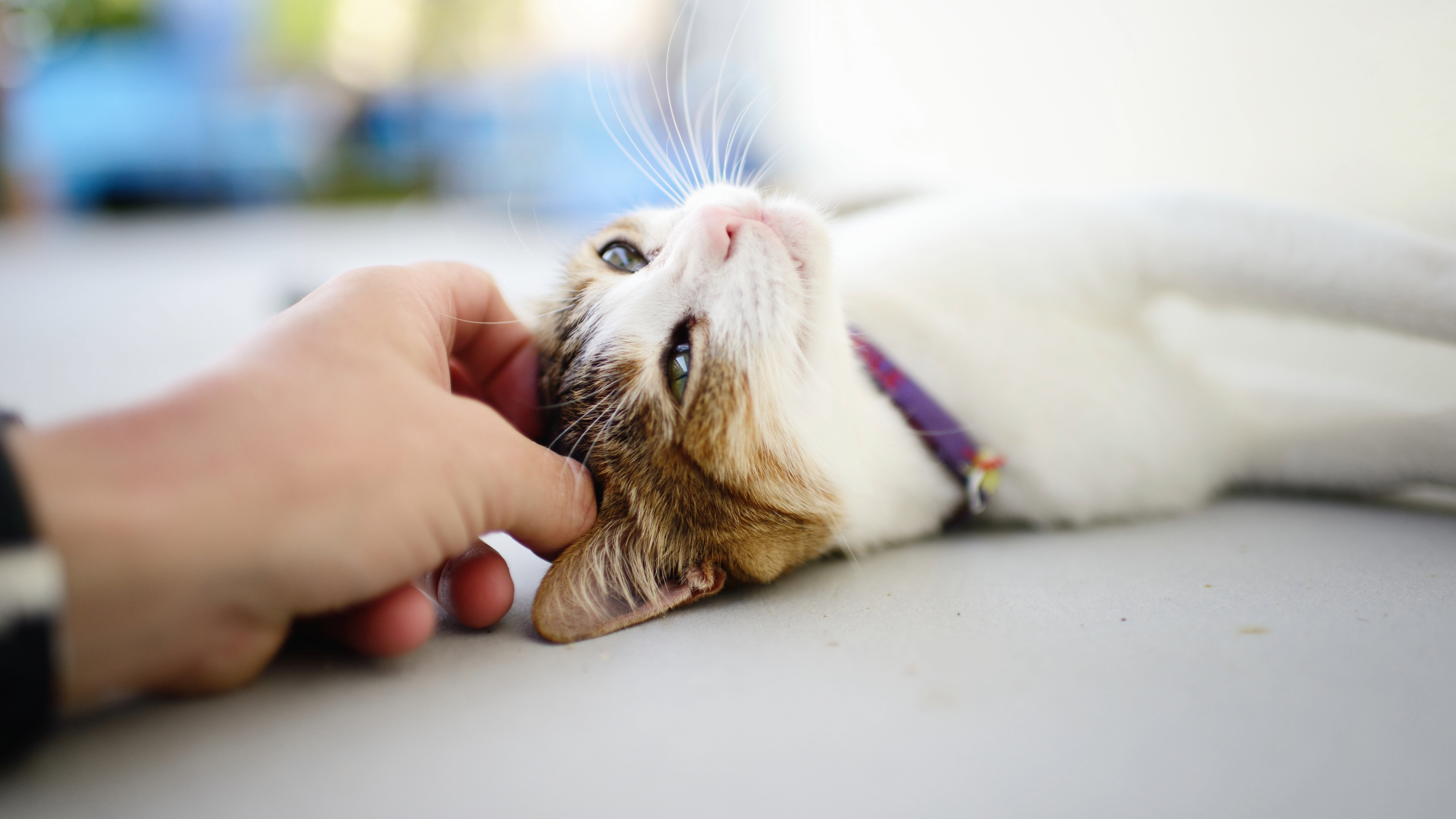
While the majority of cats are less social than dogs, more independent, and more likely to value solo time, that doesn't mean they don't love their humans. They just tend to be more selective about when they want to dish out and receive affection.
Dr MacMillan says that a happy cat can definitely be an affectionate cat, although this will vary depending on your feline friend's personality type.
"Cats that feel secure will often seek affection from their owners," she explains. They may rub against you, enjoy some headstrokes, or simply want to curl up on your lap."
5. Wanting to play

Most cats love a play session or two each day, especially if it involves zooming around the house in hot pursuit of one of the best interactive cat toys!
"If your cat is feeling joyful, then they may express this through play," says Dr MacMillan. "You should definitely reciprocate and encourage some games with their favourite toys. Play is a great way for you and your cat to bond, as well as encouraging physical exercise."
It's important to note that while play is a way for cats to express their happiness, this can vary depending on their age and individual temperament. If you have a docile kitty or an older cat, you may need to try a range of different toys and speeds to find one that's right for them.
6. Eating and drinking as normal
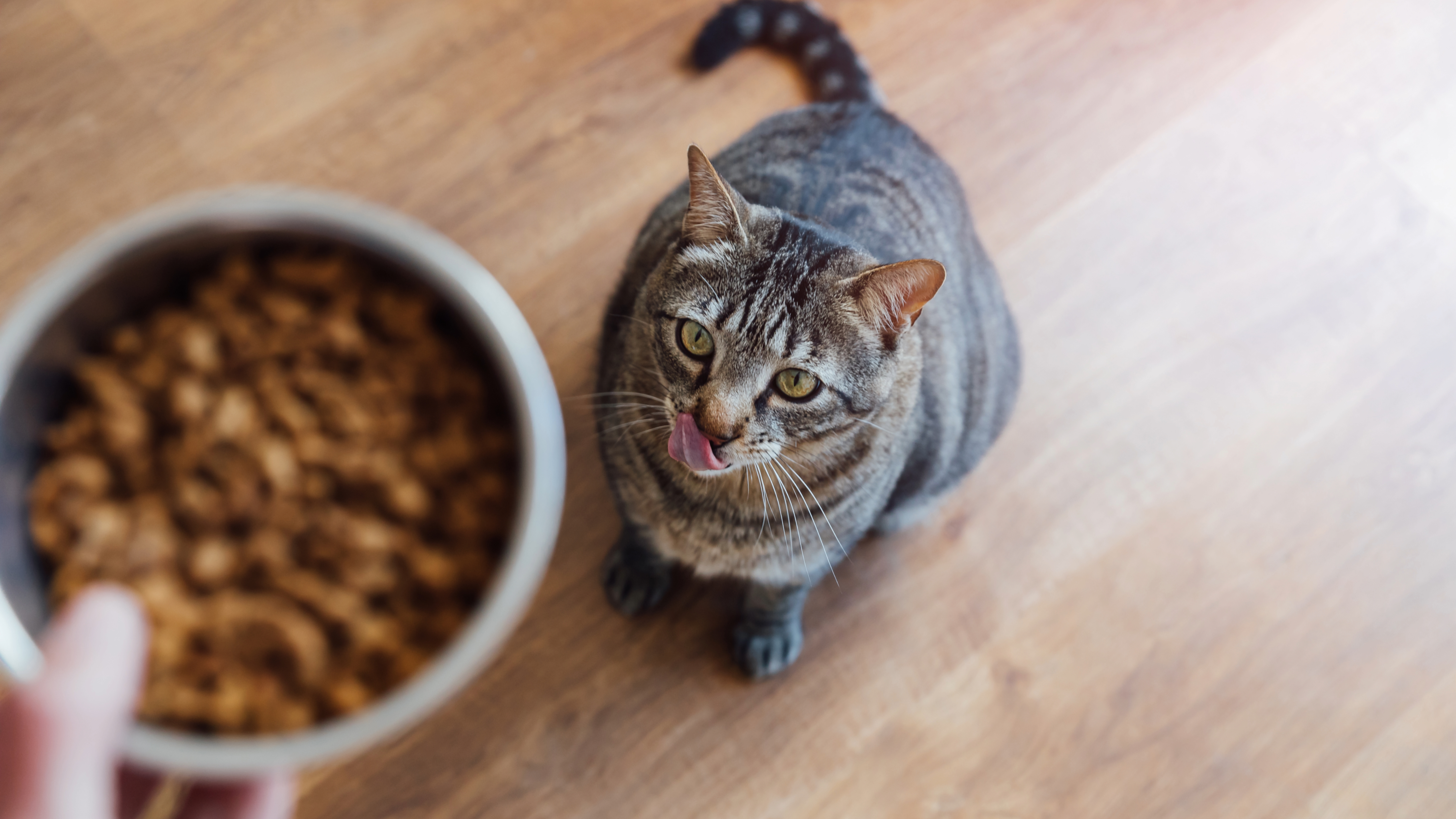
One question to ask yourself if you're wondering if your cat is happy is, are they engaging in their normal behaviors? If your kitty is eating and drinking the same amounts as they always have, this is a really good sign they're feeling content.
"A happy cat will have a normal appetite and thirst," Dr MacMillan confirms. "Cats that are depressed, anxious, or unwell will often have changes to their food intake, so you should speak to your vet if you notice anything unusual."
Happy cats tend to have good appetites and enjoy their food, and many are particularly fond of cat treats. It can be a great idea to build a routine around mealtimes as not only does this create predictability for your feline friend, but it can help to strengthen your bond, too.
7. Grooming as normal

Cats are fastidious about their personal hygiene, so as long as it's not excessive, your kitty grooming themselves on a regular basis is a great sign that it's feeling physically and mentally healthy.
"If your cat is grooming as normal, then everything is well in their world," Dr. MacMillan says. "Cats that are anxious or suffering from skin issues will often overgroom, leading to hair loss. Alternatively, cats that are not grooming themselves enough and becoming unkempt could be depressed or sick."
If you notice your cat is overgrooming or not grooming enough, it's worth getting your kitty checked over by a vet, but regular preening (which can take place up to 50% of the time your cat is awake!) is a good indicator they're feeling well within themselves.
8. Using the litter box
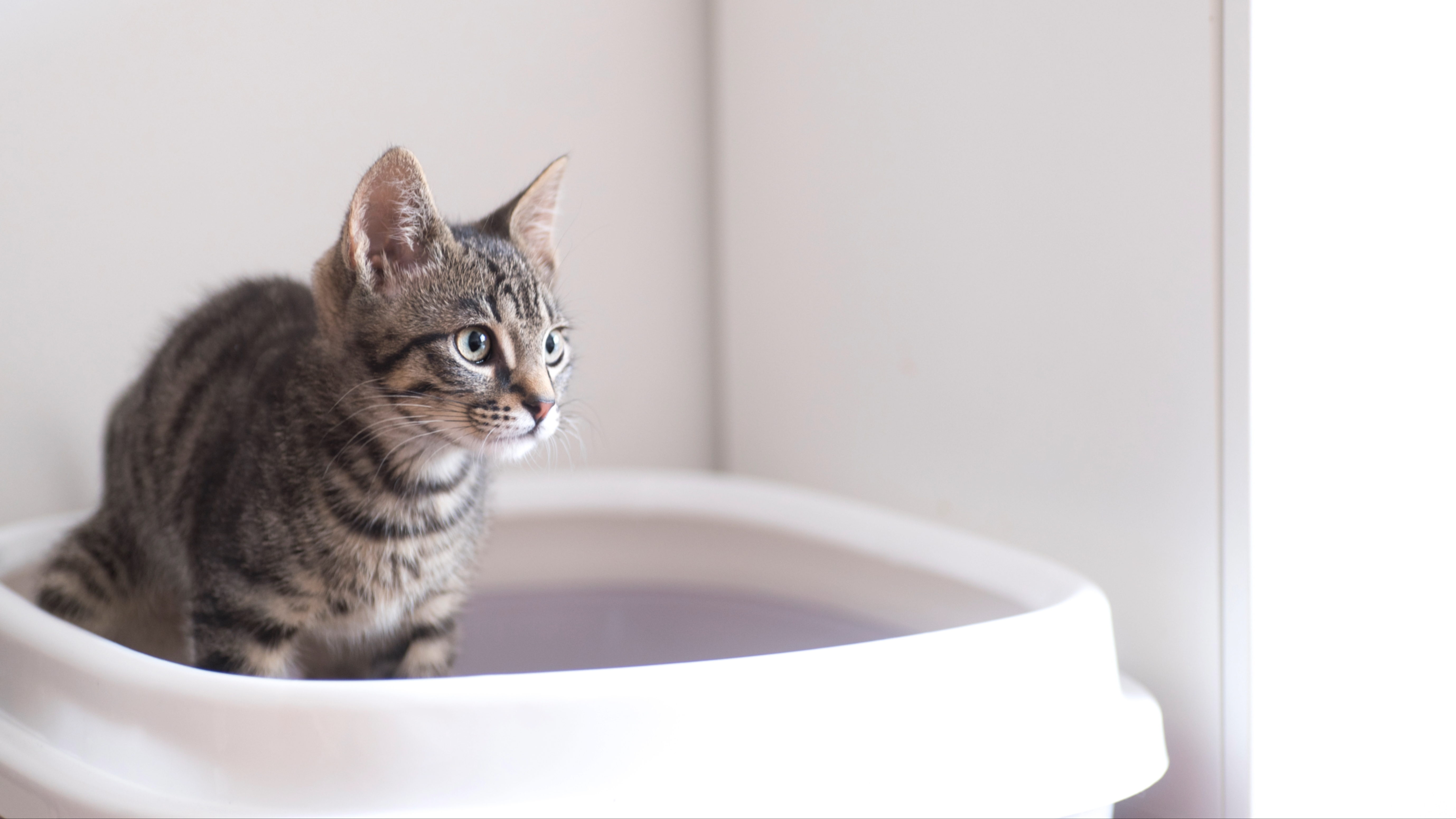
Dr MacMillan says that using the litter box and toileting normally are good signs that your cat is happy.
"Accidents occur during times of ill health or if something is upsetting your cat," she says. "Visitors, loud noises, house moves, and building works can cause anxious cats to toilet outside of the box."
If you've invested in the best cat litter box and your feline friend is using it reliably, then that suggests all is well in their world. However, if you do notice that they're suddenly urinating or defecating elsewhere, consider whether you've recently changed the litter, shifted the position of the box, or if there is anything else going on in your home that may be causing your kitty to feel stressed.
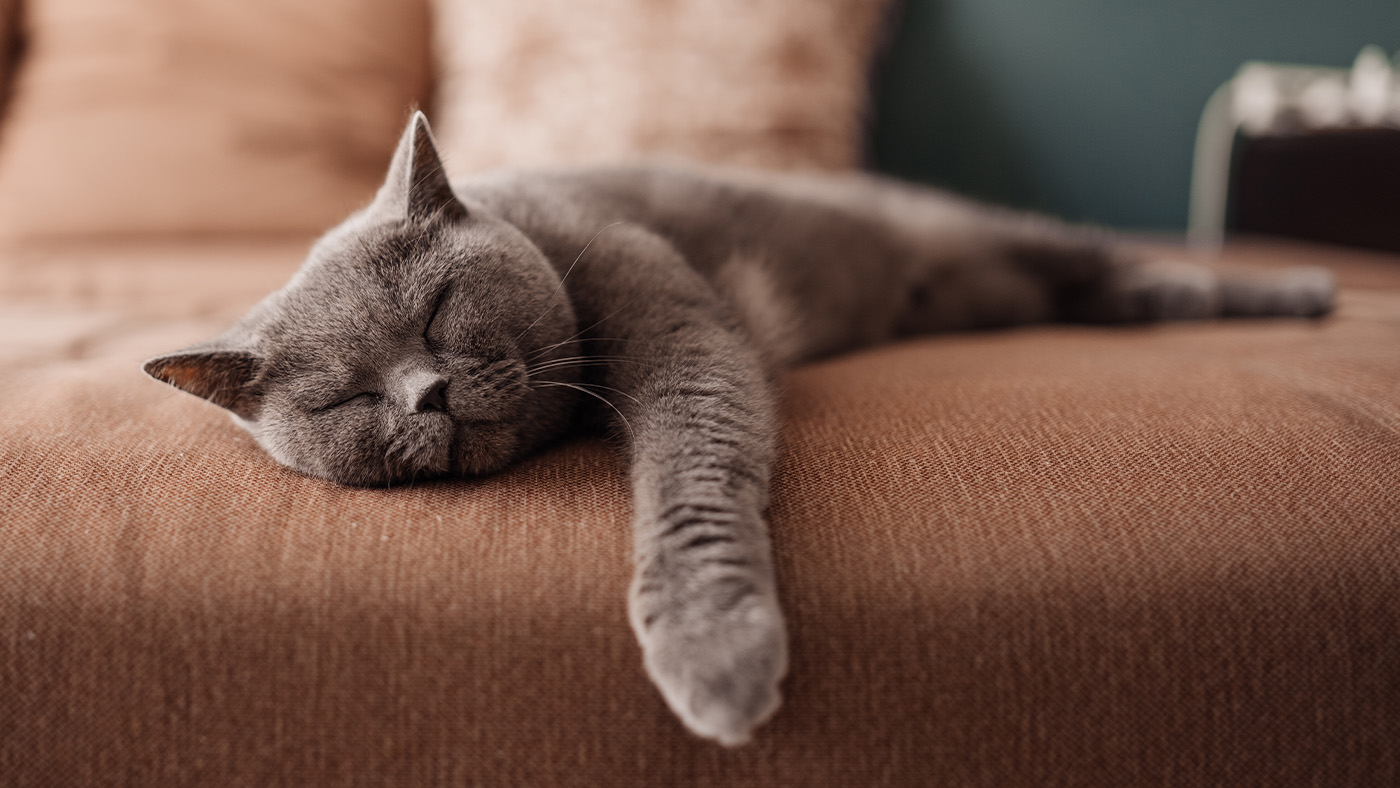
9. Regular sleep pattern
Glance over at your cat, and most of the time, there's a good chance you'll find them with their eyes glued shut! While cats have spells of being active (mostly at dawn and dusk), the majority of content kitties will spend a lot of time catching up on their beauty sleep.
"A happy cat should sleep anywhere between 12 and 18 hours per day," explains Dr MacMillan. "If your cat’s sleep patterns are changing, then this could be a sign that something is wrong. Sleeping less or more than usual is an indication that something isn’t quite right."
While some cats will sleep just about anywhere, from a hard table to a cold floor, others like a little bit more comfort, especially as they get older. Purchasing one of the best cat beds can be a great way to provide them with a cozy place to rest, and they're a lifesaver when it comes to protecting your furniture from fur!
10. Showing curiosity
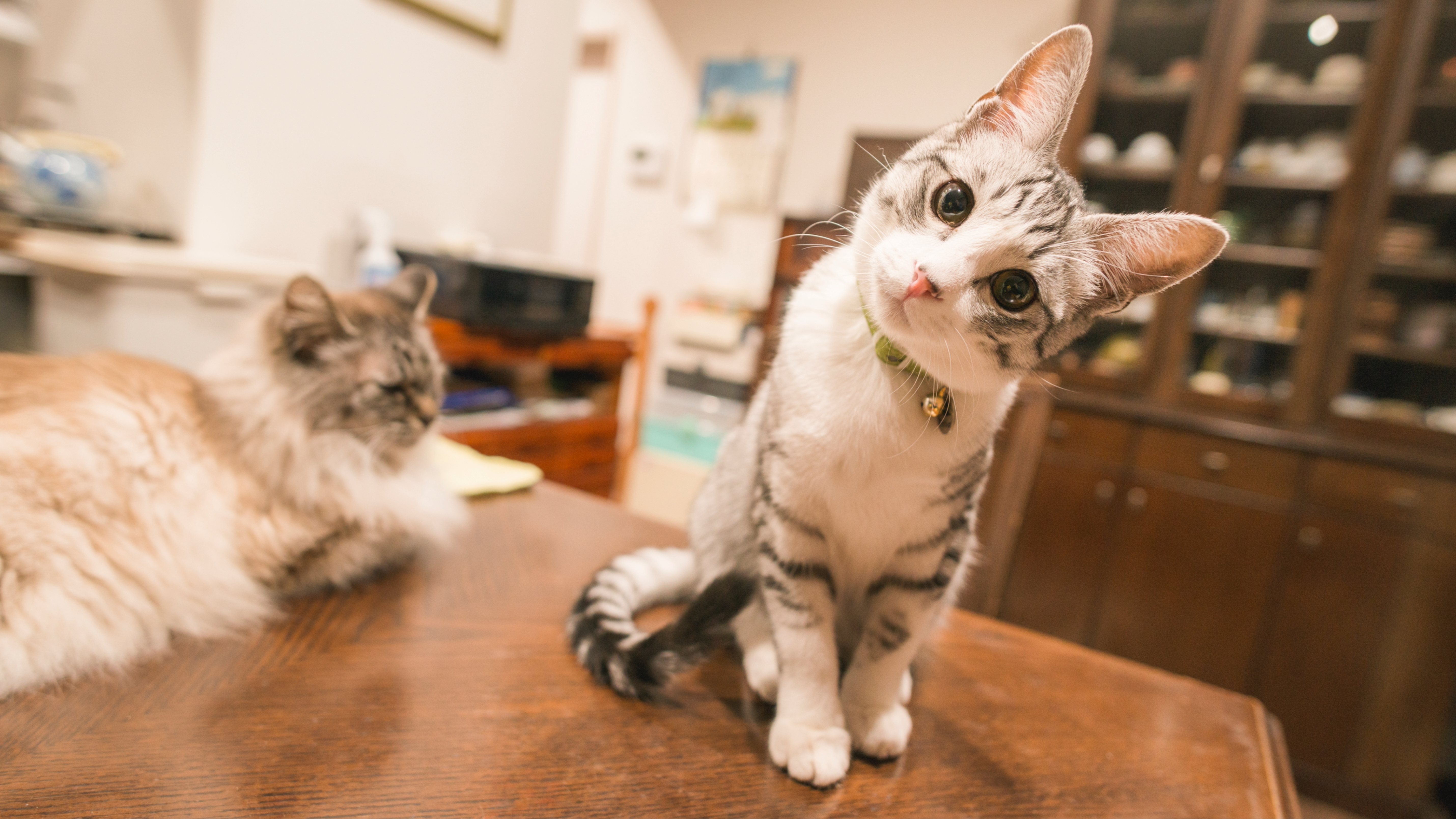
Does your cat love exploring all the nooks and crannies in your home? Do they follow you around from room to room? Are they keen to use that new cat toy you've just bought them? According to Dr MacMillan, any curiosity is a good indicator that your cat is feeling well.
"Being inquisitive and engaging with their environment clearly shows that your cat is happy," she says. You could encourage this further by using puzzle feeders and toys to keep their brains ticking over."
Read next: Signs a cat is stressed
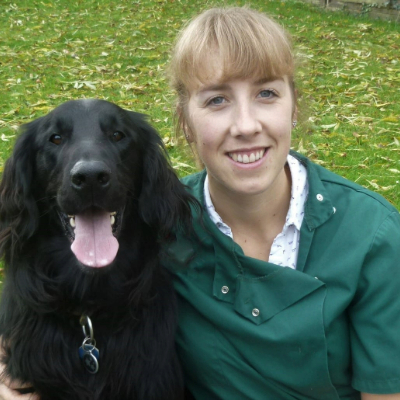
Rebecca is a veterinary surgeon who graduated in 2009 from the Royal Veterinary College in London. She has a wealth of experience in first opinion small animal practice, having done a mixture of day-to-day routine work, on-call emergency duties and managerial roles over the years. Rebecca enjoys medicine in particular and she is proud to have recently achieved a BSAVA postgraduate certificate in small animal medicine (with commendation).
Edited by Georgia Guerin and Alexis De Leaver.
Last updated in June 2025.
Get the best advice, tips and top tech for your beloved Pets

Kathryn is a freelance writer who has been a member of the PetsRadar family since it launched in 2020. Highly experienced in her field, she's driven by a desire to provide pet parents with accurate, timely, and informative content that enables them to provide their fur friends with everything they need to thrive.
Kathryn works closely with vets and trainers to ensure all articles offer the most up-to-date information across a range of pet-related fields, from insights into health and behavior issues to tips on products and training.
When she’s not busy crafting the perfect sentence for her features, buying guides and news pieces, she can be found hanging out with her family (which includes one super sassy cat and a kitten), drinking copious amounts of Jasmine tea and reading all the books.
She has written for a range of publications, including Fit&Well, Top Ten Reviews, LiveScience, Goodto, and Product Hunt.
